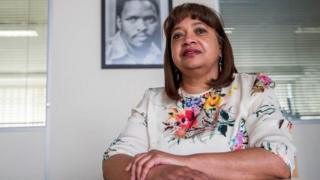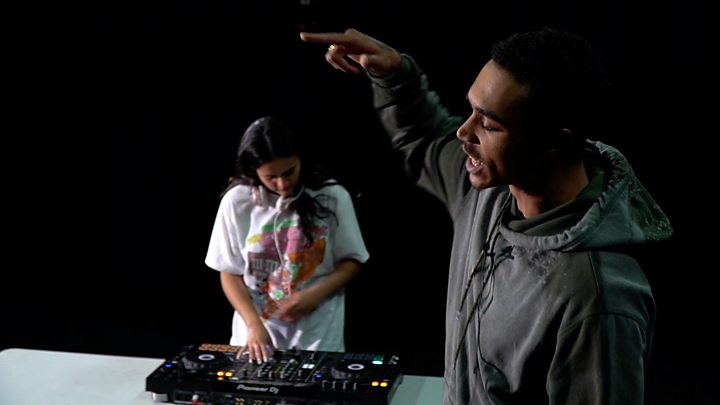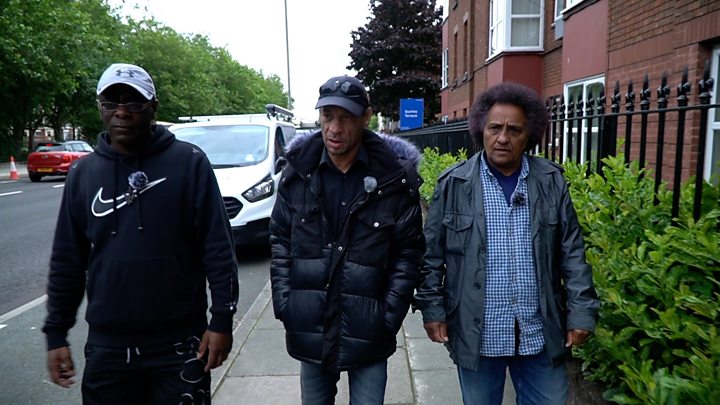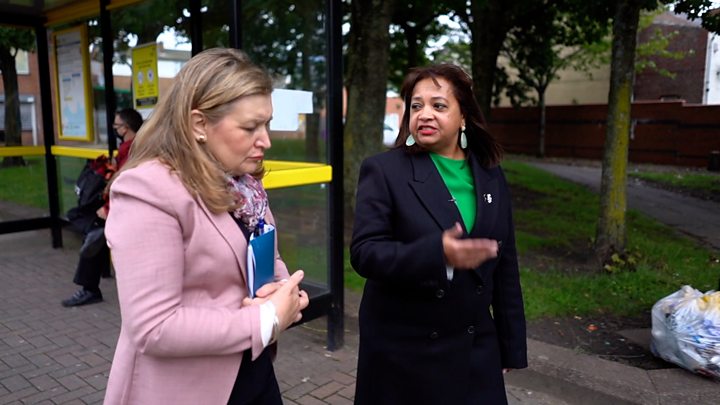
Liverpool City Council
As a 10-year-old in the 1970s, Tracey Gore recalls coming out of a shop in Lodge Lane in Toxteth, Liverpool and having racist abuse directed at her.
It came from the mouth of a police officer as he walked past.
She says these experiences were typical of the treatment meted out to young black people at that time.
Now some 50 years later she says racism is still a problem in her home city and she’s determined to see that change.
Liverpool has the longest established black community in the UK, and in the wake of the Black Lives Matter movement, the city’s mayor has set up a new Race Equality Taskforce to be headed by Tracey.
Having spent her working life in housing, for the past 17 years as director of the Steve Biko Housing Association in Toxteth or Liverpool 8, as it’s always known locally, she knows the community well and has done a lot to improve things.
But ask her if there is still racism in Liverpool and her response is unequivocal.
“Yes there is and I say that with a heavy heart,” she says.
“There are two sides to this. On one hand, the far-right will try to come and march in this city and we will turn out in droves to stop them. And I am really proud that happens.
“But on the other side we have still got systemic racism.
“So our kids are still being excluded from school, we still can’t get jobs and if we have a job, we find it difficult to progress. We’re more likely to be arrested, we’re more likely to be in jail.”

Media playback is unsupported on your device
Figures from Merseyside police show in the 12 months to March 2020, a black person was twice as likely to be stopped and searched as a white person.
And for the same period, according to the annual population survey, the unemployment rate for white people in Liverpool was 3.2%. For those from BAME backgrounds it was 11.6%.
Tracey believes there is an assumption that black people can’t achieve.
She says when she was at school she never thought university was an option for someone from her background.
Age 12 in her first year at secondary school, she remembers being told by a teacher that she would never be any good at maths and never pass her exam. She believes she was being written off at a young age because of the colour of her skin.

Media playback is unsupported on your device
But having worked for qualifications after she left school, she was appointed as Riverside Housing Association’s first black housing manager at the age of 27, before going on to the city council and starting higher education at the age of 40.
And she was determined to ensure her two daughters had opportunities denied to her. Both went into higher education and one is now a barrister.

Media playback is unsupported on your device
Walking down Lodge Lane with Tracey, there are smiles and waves and people who want to chat. The 10-year-old who suffered racist abuse is now a leader, determined to be an enabler for others.
She will now step down temporarily from her role at Steve Biko to concentrate on the taskforce.
Her team, which she will be establishing, will examine policing and criminal justice, education including early years, employment, housing and health.
“This is about our city leaders agreeing and ensuring that whatever actions and recommendations are made, they follow them through and implement them,” she says.
“This is an absolutely crucial moment for young black people in this city because we are also going into probably one of the worst recessions we’ve had. It’s unacceptable that our young people don’t feel part of this society.
“If the circumstances and the opportunities change for black people then the whole city will be lifted.
“I’m really proud that the majority of our citizens are saying this has to change.”
Why not follow BBC North West on Facebook, Twitter and Instagram? You can also send story ideas to northwest.newsonline@bbc.co.uk